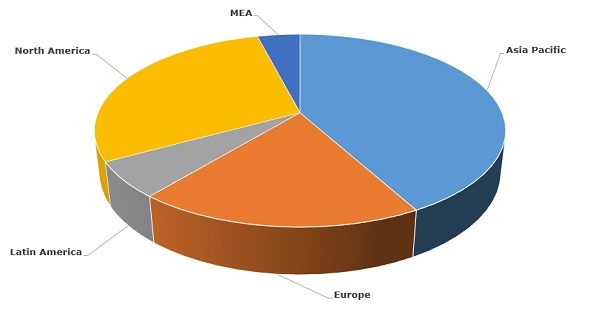Toluene is an aromatic hydrocarbon used in various applications. It is involved in production chains of multiple chemicals as an intermediate or precursor. In such role, toluene is often associated with the operation on integrated petrochemical complexes or chemical hubs, which manufacture a wide range of petrochemical products, including benzene, mixed xylenes, polypropylene, urethane raw materials, to name only a few.
With Kauri-butanol (K-B) value of 103, toluene is a powerful solvent (its K-B value is even used as a solvency strength reference point), which is employed in paints, lacquers, thinners, glues, cosmetic products, etc.
With largely de-monopolized and rather balanced market, the importance of integrated complexes and petrochemical hubs has been rising due to their capacity to demonstrate enhanced flexibility, improved adaptability, technological superiority and economy of scale.
Toluene: structure of the global capacity by region

Currently, there are multiple examples of such complexes (where toluene is included in a product range), being built in different parts of the world. Vung Ro Petroleum (Vietnam) is constructing an 8 mln mt/y integrated petrochemical complex in Phu Yen Province (Vietnam) to be commissioned in 2018. Abu Dhabi National Chemicals Company is building a major chemicals hub in the Taweelah district of Al Gharbia in Abu Dhabi, UAE to come on-stream in 2016. It will include construction of a 10 mln mt/y aromatics complex within the Tacaamol Aromatics Project (TAP). Such mega-projects require substantial financing, advanced management skills and huge operational efforts, but they are cost-effective and commercially viable.
Further info on the toluene market performance at various geographical levels is provided in the in-demand research report “Toluene: 2016 World Market Outlook and Forecast up to 2020”.
